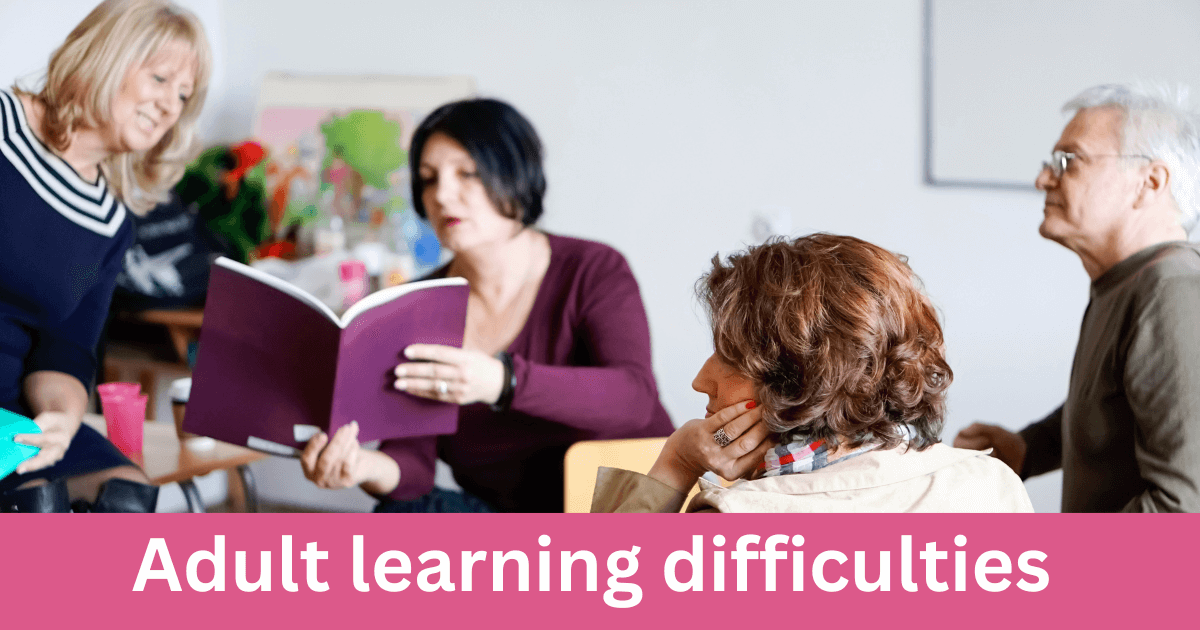Introduction
Learning difficulties in adults can impact various aspects of daily life, including communication, social interactions, and the ability to complete routine tasks. With appropriate support and resources, individuals with learning difficulties can lead fulfilling and independent lives. This comprehensive guide will explore the different types of learning difficulties, how they affect adults in the UK, and the available support and resources to help individuals overcome these challenges.
Types of Learning Difficulties in Adults
- Dyslexia: Dyslexia is a common learning difficulty that primarily affects reading, writing, and spelling skills. It can impact an individual’s ability to process and understand written language, as well as their short-term memory and organizational skills.
- Dyscalculia: Dyscalculia affects an individual’s ability to understand and work with numbers. It can impact arithmetic skills, spatial awareness, and the ability to tell time or manage finances.
- Dyspraxia: Also known as Developmental Coordination Disorder (DCD), dyspraxia affects motor coordination, causing difficulties with balance, fine motor skills, and planning and organizing movements.
- Attention Deficit Hyperactivity Disorder (ADHD): ADHD is characterized by symptoms such as inattention, impulsivity, and hyperactivity, which can impact an individual’s ability to focus, complete tasks, and maintain social relationships.
- Autism Spectrum Disorder (ASD): ASD is a developmental disorder that affects an individual’s social, communication, and behavioral skills. It can manifest in a wide range of symptoms and severity levels, with each person experiencing unique challenges.
Impact of Learning Difficulties in Adults
Learning difficulties can impact various aspects of an adult’s life, including:
- Education and employment: Individuals with learning difficulties may face challenges in completing their education or finding and maintaining employment, often requiring additional support to succeed in these areas.
- Social relationships: Communication and social skills may be affected by learning difficulties, leading to challenges in forming and maintaining relationships with others.
- Mental health: The challenges faced by individuals with learning difficulties can contribute to feelings of frustration, low self-esteem, and anxiety, potentially impacting mental health.
- Daily living skills: Learning difficulties can make it challenging for individuals to complete routine tasks, manage finances, and maintain a sense of independence.
Support and Resources for Adults with Learning Difficulties in the UK
- Local authority services: Adults with learning difficulties can access various support services provided by local authorities, such as social care assessments, housing support, and financial assistance.
- Educational support: Colleges and universities often have dedicated support services to assist students with learning difficulties, including tutoring, accommodations, and assistive technology.
- Employment support: Programs such as Access to Work and the Disability Confident scheme can help individuals with learning difficulties find suitable employment and receive necessary accommodations in the workplace.
- Support groups and charities: Various support groups and charities, such as Mencap, Dyslexia Association, and National Autistic Society, offer resources, advice, and advocacy for individuals with learning difficulties and their families.
- Healthcare services: Accessing appropriate healthcare services, such as occupational therapy, speech and language therapy, and mental health support, can help individuals with learning difficulties overcome challenges and enhance their quality of life.
Conclusion
Learning difficulties in adults can present unique challenges, but with the right support and resources, individuals can lead fulfilling and independent lives. By understanding the different types of learning difficulties and the available support in the UK, adults with learning difficulties and their families can access the assistance they need to overcome challenges and thrive.

